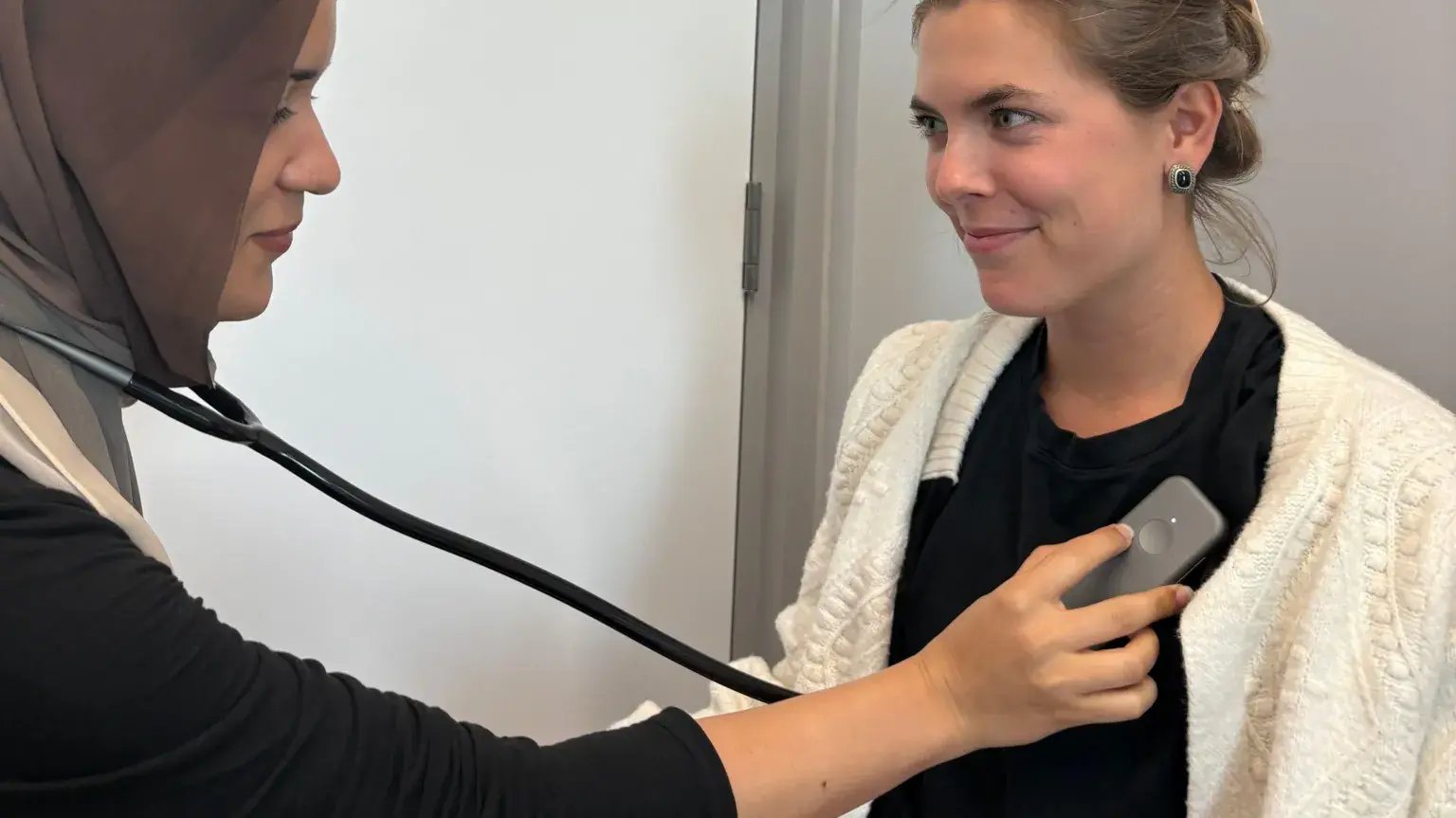
AI-powered stethoscope detects heart diseases in just 15 seconds
The device, tested on over 12,000 patients in the United Kingdom, multiplies the diagnosis of heart failure, arrhythmias, and valvular diseases in primary care
A new digital stethoscope, enhanced by artificial intelligence, is transforming the diagnosis of heart diseases in the United Kingdom. The device, named Eko Duo, can detect heart failure, atrial fibrillation, and heart valve diseases in just 15 seconds, thanks to its ability to analyze heart sounds and perform an electrocardiogram (ECG) simultaneously.
Developed by researchers at Imperial College London and Imperial College Healthcare NHS Trust, the stethoscope was tested in 96 medical practices as part of a study involving more than 12,700 patients with symptoms such as fatigue or breathing difficulties. The results were definitive: patients examined with the new device were 2.33 times more likely to be diagnosed with heart failure, 3.45 times more likely with atrial fibrillation, and 1.92 times more likely with valve disease, compared to those evaluated using traditional methods.
"This is an elegant example of how the humble stethoscope, invented over 200 years ago, can be updated for the 21st century," stated Dr. Sonya Babu-Narayan, cardiologist and clinical director of the British Heart Foundation, which funded the research.
The device replaces the classic chest piece with a playing card-sized apparatus that records heart sounds and performs an ECG. The data is sent to the cloud, where it's analyzed by artificial intelligence, and results are received on the doctor's mobile phone within seconds.
More information
"The stethoscope design hadn't changed in over two centuries, so it's incredible that it can now perform a 15-second examination and AI can quickly deliver a result indicating whether someone has heart failure, atrial fibrillation, or valve disease," explained Dr. Patrik Bächtiger from the National Heart and Lung Institute at Imperial College London.
The official presentation of this technology took place at the Annual Congress of the European Society of Cardiology, held in Madrid, the world's largest event in its specialty. There, thousands of doctors witnessed firsthand the potential of this tool that promises to change the paradigm of early diagnosis.
Data Soruce BBC News


